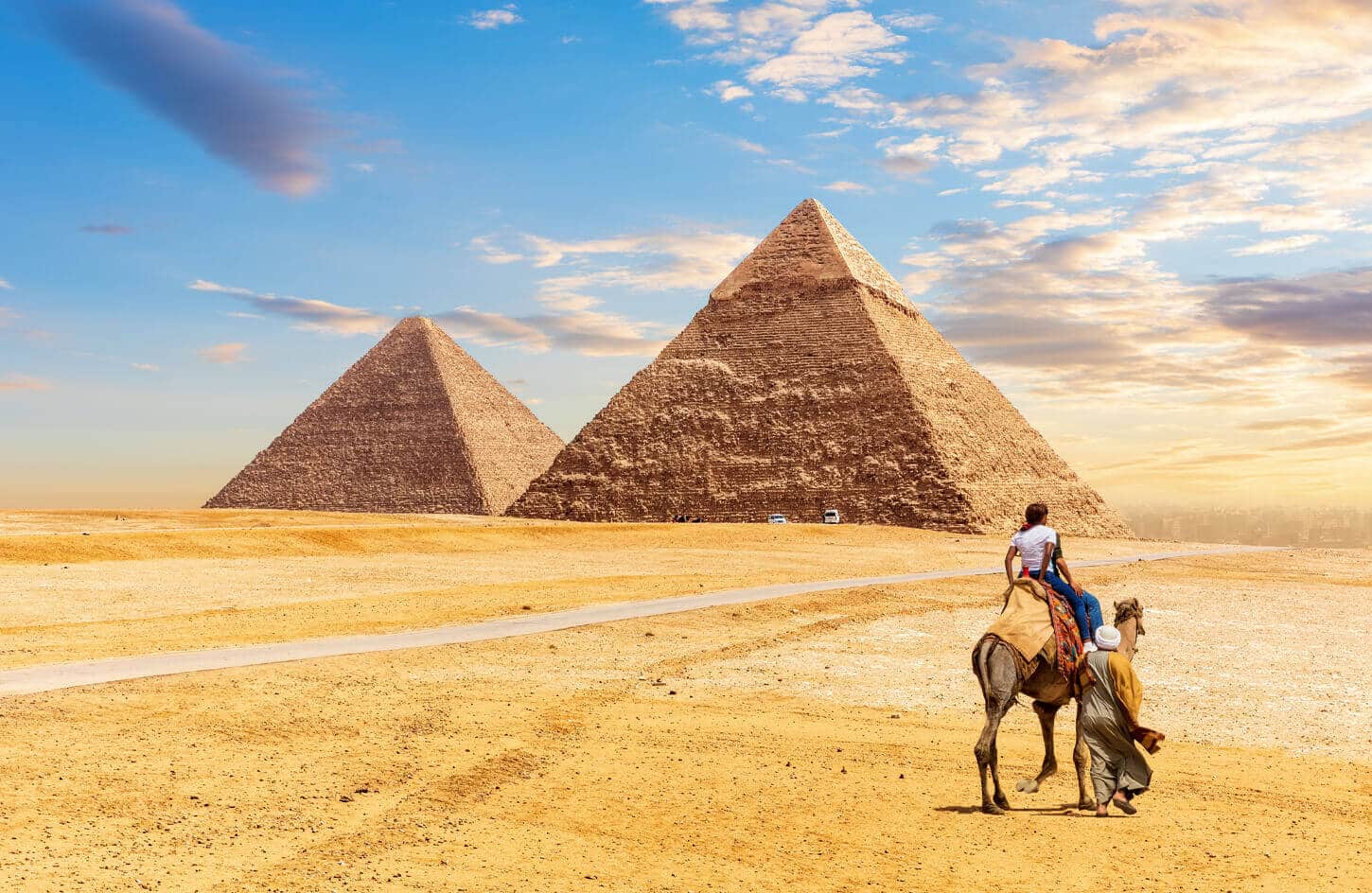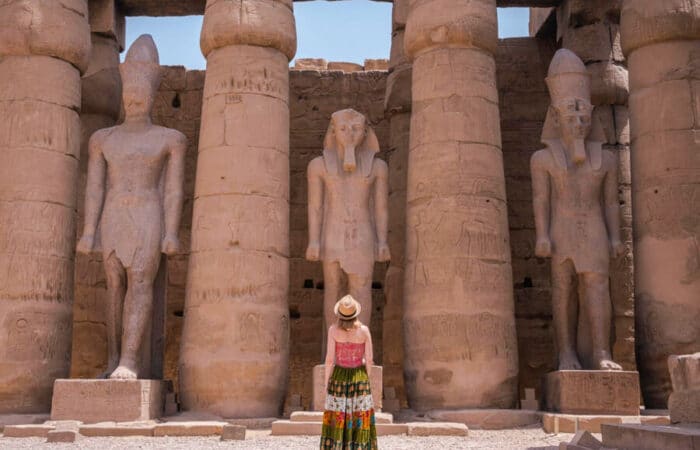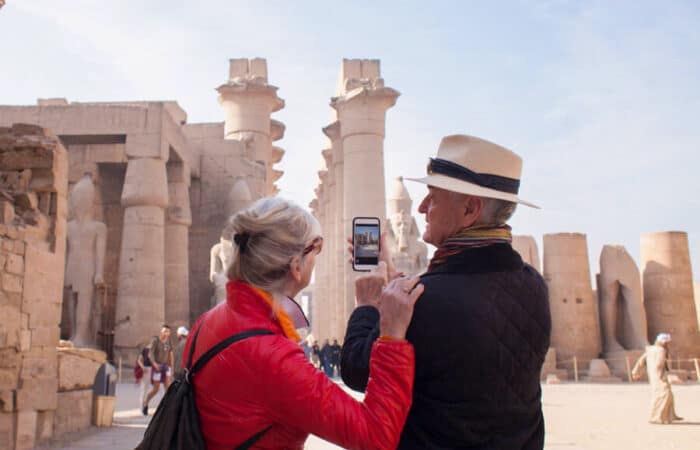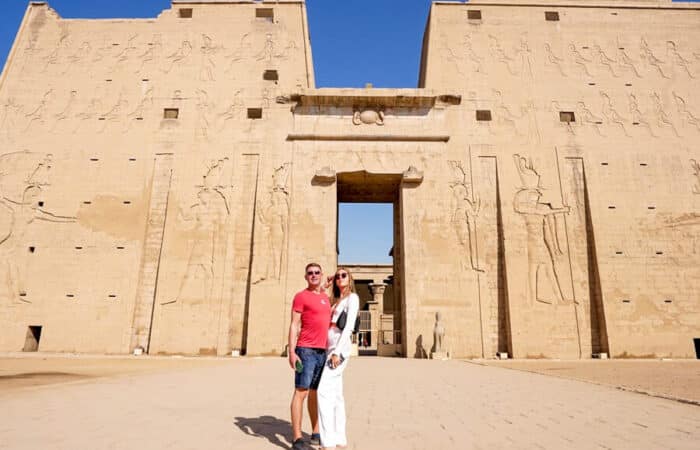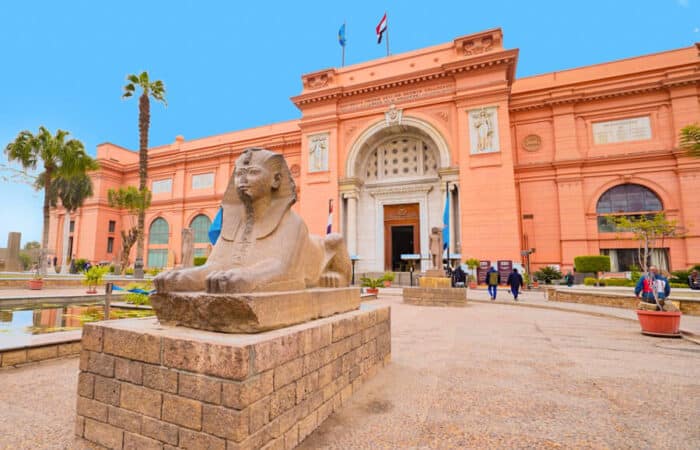Ever wondered about the secrets the Nile River keeps about ancient Egypt? This legendary waterway has been vital for thousands of years, shaping the landscape, culture, and daily life of the Egyptian people. From its mysterious origins in Africa to its powerful influence on agriculture and civilization, the Nile’s story is deeply woven into Egypt’s identity.
Today, many Egypt Travel Packages follow the course of this timeless river, allowing travelers to experience firsthand the history, temples, and riverside life it created. For those seeking a more personal journey, you can also customize your Egypt tour to match your interests, pace, and travel style. But what truly makes this river so special? Let’s dive into the Nile’s ancient past and explore how it shaped Egypt through What is the History of the Nile River in Egypt?
Key Takeaways
- Explore the Nile River’s vital role in shaping ancient Egyptian civilization and its lasting impact on the region.
- Uncover the Nile’s mysterious origins and trace its journey through the heart of Africa to the Mediterranean Sea.
- Discover how the Nile’s annual flooding cycles were essential for sustaining Egyptian agriculture and way of life.
- Examine the sacred symbolism and mythological significance of the Nile in ancient Egyptian beliefs and practices.
- Follow the Nile’s course through the heart of Egypt, from Aswan to the Nile Delta, and see how it has influenced the country’s geography and culture.
The Origins of the Mighty Nile River
The Nile River is the longest river in the world. It starts in the heart of Africa. It flows over 6,650 kilometers (4,130 miles) from Ethiopia and South Sudan. It passes through ancient lands before reaching the Mediterranean Sea.
Exploring the Nile’s Birthplace in the Heart of Africa
The Nile River’s journey starts in Africa’s Equatorial Lakes region. The White Nile comes from Lake Victoria, the second-largest lake in the world. This lake is fed by many rivers and streams, making it the Nile’s main source.
Further north, the Blue Nile begins at Lake Tana in Ethiopia. It adds a lot of water to the Nile’s flow.
Tracing the Nile’s Journey Through Ancient Civilizations
The Nile winds its way northward, supporting ancient civilizations. It helped the Egyptian empire and Nubian kingdoms thrive. The Nile gave life, food, and cultural value to those living along its shores.
The Nile’s journey shows nature’s power and human resilience. Generations have used its resources to build remarkable civilizations.
Book your Egypt Tour Package Now
The Rise of Ancient Egyptian Civilization Along the Fertile Nile Valley
The Ancient Egyptian civilization thrived by the Nile River. This river’s annual floods made the land perfect for farming. It helped create a society that would change history.
The Nile’s silt made the land rich and fertile. It grew crops like wheat and vegetables. This abundance allowed the Egyptians to settle and build a complex society.
The Nile was also key for trade and communication. It connected Egypt to other lands. This exchange boosted their culture, art, and technology.
| Key Factors in the Rise of Ancient Egyptian Civilization |
|---|
| Fertile Nile Valley |
| Nutrient-rich silt deposits |
| Abundance of food resources |
| Strategic location of the Nile River |
| Vibrant cultural and intellectual environment |

The Egyptians’ bond with the Nile was crucial. They used its resources and adapted to its cycles. This led to a sophisticated civilization that shaped history.
Nile Flooding Cycles: A Lifeline for Egyptian Agriculture
The Nile River’s flooding was key to ancient Egyptian farming. The Nile’s waters would overflow, bringing fertile silt to the land. This made the soil rich and helped the civilization grow food.
The Significance of the Annual Nile Inundation
The Nile’s flooding was a major event in ancient Egypt. It left behind silt that made the Nile Valley fertile. This cycle helped the Egyptians plan their farming and use the floodwaters wisely.
Ancient Egyptian Techniques for Harnessing the Nile’s Floodwaters
- Sophisticated irrigation systems: The Egyptians built a network of canals and reservoirs to spread the Nile’s water.
- Crop rotation and diversification: They rotated crops and grew different types to make the most of the soil.
- Water management techniques: They used sluice gates and dams to manage the Nile’s flow and prevent floods.
The ancient Egyptians used these techniques to make the most of the Nile flooding cycles. They turned the Nile River’s significance into a key part of their successful society.
| Benefit of Nile Flooding | Ancient Egyptian Farming Technique |
|---|---|
| Nutrient-rich silt deposition | Sophisticated irrigation systems |
| Predictable annual cycle | Crop rotation and diversification |
| Reliable water source | Water management techniques |
“The Nile River’s annual flooding cycles were the foundation of ancient Egyptian agriculture, allowing the civilization to thrive in the heart of a desert.”
What is the History of the Nile River in Egypt?
The Nile River has been key in ancient Egypt’s history. It helped shape the civilization and was a vital resource for its people. The Nile supported agriculture, played a big role in Egyptian mythology, and was deeply rooted in cultural beliefs.
The Nile’s history in Egypt goes back thousands of years. It was crucial for the ancient Egyptian civilization’s rise and success. As the world’s longest river, the Nile provided water, fertile soil, and a way to travel.
The Nile’s annual flooding was vital for ancient Egypt’s farming. The river’s flooding allowed the Egyptians to plan their crops. This ensured a steady food supply, helping the civilization thrive along the Nile Valley.
| Significance of the Nile River in Ancient Egypt | Impact |
|---|---|
| Water Supply | Provided a reliable source of water for drinking, irrigation, and transportation |
| Fertile Soil | The annual flooding deposited nutrient-rich silt, making the Nile Valley an agricultural heartland |
| Transportation | The Nile served as a major trade route, connecting the northern and southern regions of Egypt |
| Cultural and Spiritual Significance | The Nile was revered in Egyptian mythology and played a central role in religious beliefs and practices |
The Nile River’s history in Egypt shows its lasting importance. It was a cornerstone for one of the world’s most influential ancient civilizations.
The Nile River’s Significance in Egyptian Mythology
The Nile River was very important in ancient Egyptian mythology and culture. It was seen as a source of life, deeply connected to their religious beliefs and stories.
The god Hapi was linked to the Nile’s annual flooding. The Nile’s role in feeding the land and people was seen as a divine gift. This made the river a key part of their spirituality.
Exploring the Sacred Symbolism of the Nile in Ancient Beliefs
The Nile was more than just a river in Egyptian mythology. It was a symbol of life, fertility, and renewal. Its waters were believed to connect people to the afterlife and the gods.
- The goddess Isis was tied to the Nile’s floods and the land’s crops.
- The god Osiris, ruler of the underworld, was also linked to the Nile. The river’s floods were seen as a cycle of life and death.
- Many religious festivals and rituals celebrated the Nile’s role in supporting Egyptian civilization. This showed its importance in their worldview.
The Nile River’s lasting impact and significance in Egyptian mythology still fascinate many today. It gives us a glimpse into the rich culture of this ancient civilization.
Following the Nile River’s Course Through Ancient Egypt
The Nile River was key to ancient Egypt’s life. It helped cities grow and was a major trade route. From Aswan in the south to the Mediterranean Sea, the Nile was vital for Egypt’s success.
Tracing the Nile’s Journey from Aswan to the Mediterranean Sea
As the Nile flows north, it touches many important sites in ancient Egypt:
- Aswan: The southern gateway to ancient Egypt, known for its granite quarries and the iconic Aswan High Dam.
- Luxor: Home to the magnificent Karnak Temple complex and the Valley of the Kings, where many pharaohs were buried.
- Thebes: The ancient capital of Egypt, situated along the Nile and renowned for its impressive temples and monuments.
- Cairo: The modern-day capital, which grew from the ancient city of Memphis, located just north of the Nile’s delta region.
The Nile gave ancient Egyptians water, fertile land, and a way to travel. These gifts were essential for their growth and success.
| Nile River Site | Historical Significance |
|---|---|
| Aswan | Southern gateway to ancient Egypt, known for granite quarries and Aswan High Dam |
| Luxor | Home to Karnak Temple complex and Valley of the Kings |
| Thebes | Ancient capital of Egypt, renowned for impressive temples and monuments |
| Cairo | Modern capital, grew from ancient city of Memphis in Nile delta region |
“The Nile River was the lifeblood of ancient Egyptian civilization, providing the resources and transportation needed for the empire to thrive.”
Exploring the Nile River‘s path through ancient Egypt helps us understand its role in shaping Egypt’s history. It shows how this waterway was crucial for the rise of a remarkable civilization.
The Nile Delta: A Fertile Region Shaped by the River
The Nile Delta is in northern Egypt. It’s a vast, captivating area shaped by the Nile River over thousands of years. This fertile delta is famous for its lush lands, vital for the Egyptian people’s survival.
The Nile Delta shows the river’s power and importance. Its wide floodplains, fed by the Nile’s annual floods, have supported farming for millennia. Here, crops like wheat and barley, and fruits like dates and citrus, have fed the nation.
The Nile Delta was key to ancient Egyptian civilization. Its location near the Mediterranean made it a center of trade and culture. This led to the growth of cities and powerful dynasties. The delta’s history is seen in its many archaeological sites and ruins.
Today, the Nile Delta is still crucial for Egypt. It provides food, jobs, and a link to Egypt’s rich past. As the Nile River continues to shape it, the Nile Delta stands as a symbol of the river’s enduring power.
The Impact of the Aswan High Dam on the Nile River
The Aswan High Dam was built in the 1960s. It changed the Nile River and the area around it a lot. The dam helped control floods and made electricity, but it also caused big problems.
Environmental Impacts
The dam messed up the Nile’s natural flooding. This was key for farming in the area. Now, the river’s ecosystem is different, with less nutrients and fewer fish.
Also, the dam covered up old archaeological sites. This loss of history is very sad.
Cultural Consequences
The dam affected local people who depended on the Nile. They had to change how they farmed because of the dam. This was hard for them.
The loss of ancient sites and artifacts is still a big issue. Saving our cultural heritage is very important.

The Aswan High Dam’s effects on the Nile and its people are still talked about today. We’re trying to figure out how to balance development, protect the environment, and save our history. This project shows us how big of an impact humans can have on nature and communities.
Discovering the Nile River’s Legacy in Egypt Today
The Nile River is still very important in Egypt, drawing visitors from everywhere. Taking a trip with Egypt Tours by Locals lets you see the river’s lasting impact. You’ll discover its ancient secrets.
These tours take you deep into the Nile’s history. You’ll see famous landmarks and meet people living by the river. They show how the Nile has shaped Egypt, past and present.
Places like the Aswan High Dam and the Nile Delta show the Nile’s mark on Egypt. You can see the Nile’s annual flood, which helped farming for thousands of years. Or learn about the river’s role in ancient Egyptian beliefs.
Going on a Egypt Tours by Locals trip helps you understand the Nile’s big role in Egypt. It’s great for history lovers or anyone wanting to see the Nile’s beauty. These tours are a unique way to connect with the Nile’s legacy.
Conclusion: What is the History of the Nile River in Egypt
The Nile River has been key in ancient Egypt’s history. It helped the civilization grow and was crucial for the people living by its banks. The Nile supported farming, was important in myths, and was a big part of Egyptian culture. Exploring the Nile’s history helps us understand Egypt’s past and its people’s journey.
The Nile’s story in Egypt shows how natural resources shape human societies. It has been central to Egyptian culture for thousands of years. It gave water, fertile land, and spiritual value. Learning about the Nile’s role in ancient Egypt reveals the roots of this amazing civilization and its global influence.
As you learn more about the Nile River in Egypt, you’ll find a wealth of stories and traditions. These have lasted for millennia. The Nile’s importance in Egyptian history reminds us of the power of natural resources. It shows how one river can greatly impact a people’s lives and history.


